Universities in Australia 2024
- Education information
- Comprehensive Guide to Universities in Australia
- Study Programs at Top Universities in Australia
- Advantages of Studying in Universities in Australia
- Universities in Australia Cost and Fees for Foreign Students
- How to apply to Universities in Australia for foreign students?
- Literature and references
-
 from 9000.00 $ / yearApply with documents
from 9000.00 $ / yearApply with documents -
 from 23000.00 $AUD / yearApply with documents
from 23000.00 $AUD / yearApply with documents -
 #1 best university in Business Faculties in Australia
#1 best university in Business Faculties in Australia AustraliaSydneyCurrently watching: 5from 15188.00 $AUD / 37 weeksApply with documents
AustraliaSydneyCurrently watching: 5from 15188.00 $AUD / 37 weeksApply with documents -
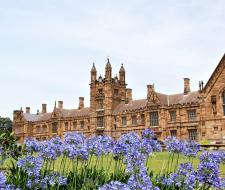 from 75000.00 $AUD / 18 monthsApply with documents
from 75000.00 $AUD / 18 monthsApply with documents -
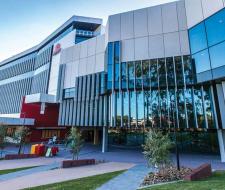 #1 of Design and Architecture in Australia
#1 of Design and Architecture in Australia AustraliaGold CoastCurrently watching: 6from 24000.00 $AUD / yearApply with documents
AustraliaGold CoastCurrently watching: 6from 24000.00 $AUD / yearApply with documents -
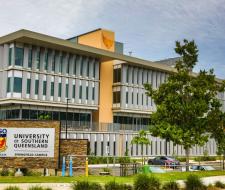 #26 in Best Global Universities in Australia
#26 in Best Global Universities in Australia AustraliaBrisbaneCurrently watching: 5from 23564.00 $ / yearApply with documents
AustraliaBrisbaneCurrently watching: 5from 23564.00 $ / yearApply with documents -
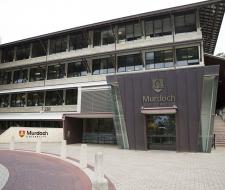 from 22302.00 $AUD / yearApply with documents
from 22302.00 $AUD / yearApply with documents -
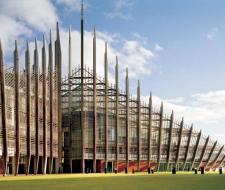 #27 in Best Global Universities in Australia
#27 in Best Global Universities in Australia AustraliaPerthCurrently watching: 5from 450.00 $AUD / weekApply with documents
AustraliaPerthCurrently watching: 5from 450.00 $AUD / weekApply with documents -
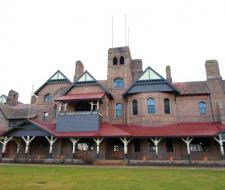 #32 in Best Global Universities in Australia
#32 in Best Global Universities in Australia AustraliaSydneyCurrently watching: 4from 15356.00 $ / yearApply with documents
AustraliaSydneyCurrently watching: 4from 15356.00 $ / yearApply with documents -
 ranked #62 in Best Global Universities
ranked #62 in Best Global Universities AustraliaCanberraCurrently watching: 4from 31500.00 $AUD / yearApply with documents
AustraliaCanberraCurrently watching: 4from 31500.00 $AUD / yearApply with documents
Alternative destinations
Education information
A large number of opportunities for foreign students are opened with education in Australia : more than 22,000 educational courses in 1,200 public and private institutions are offered in Australia.
All levels of education are represented in Australian educational system: primary, secondary, vocational, university level. Bachelor's degrees also allow foreign applicants to get short-term courses of study, for example, while working or traveling.
The quality of professional education and the protection of international students are guaranteed by Australian law. Foreign students on a student visa can study only in educational institutions registered in the state Register - this guarantees compliance with high national and international standards.
In order for a trip to Australia to be bright, unforgettable and not limited only to gaining knowledge, it is worth visiting the top places of the Green Continent:
-
The Great Barrier Reef. It is the most beautiful coral reef in the world. This is a real ecosystem with unique flora and fauna. It consists of 3,000 coral reefs and occupies more than 300 sq.km of area along the Australian coast of Queensland.
-
Cape Byron. It is the easternmost point of the continent and is considered one of the most beautiful places in all of Australia. The real business card of the cape is a snow—white lighthouse built in 1901. From the lighthouse you can observe the life of dolphins, whales and sharks that often visit these places.
-
Cockington Green Gardens in Canberra is a real world in miniature.
-
The 12 Apostles of Victoria and the Great Ocean Road. The Apostles are 12 huge limestone rocks protruding directly from the sea.
-
The red rock of Ayers Rock, or Uluru. It rises in the middle of the desert in the central part of Australia.
-
Fraser Island. It belongs to the UNESCO World Heritage Site. The island is famous for its white sandy beaches, tropical forests, pristine lakes and amazing dunes, dingo dogs.
-
Sydney Harbour. It has a coastline length of 240 km .
-
Phillip Island. One of the most beautiful Australian islands with beautiful beaches, located on an area of one hundred hectares.
-
Blue Mountains Park. It is known for its picturesque nature — lakes, waterfalls, steep cliffs and tropical forests.
-
Pink salt lakes. Reservoirs are considered one of the most amazing and unusual natural wonders of Australia.
Comprehensive Guide to Universities in Australia
Australia boasts a diverse and well-regarded higher education system, with a majority of its universities funded by the government. Out of the 41 institutions in the country, only five are privately owned, highlighting the substantial financial support provided by the government. These funds are instrumental in improving teacher qualifications, fostering modern teaching methods, and facilitating scientific research.
The Multi-Stage Structure:
Much like other European nations, Australia's higher education system is structured into multiple stages:
-
Bachelor's degree
-
Advanced Bachelor's degree
-
Master's degree
-
Doctoral studies
It's crucial to note that students need not progress through every stage. Each level is validated by diplomas and certificates, granting students access to professional pursuits. Students typically base their choice of profession on their skills and interests. However, demand for specific professions also plays a vital role. Aspiring students can consult the Skilled Occupation List (SOL), a publicly accessible resource, to identify in-demand career paths.
Bachelor's Degree in Australia
International students can earn a bachelor's degree in Australia within just three years of study. Advanced bachelor's degrees may take four to five years to complete. The distinctive feature of the fourth year is the opportunity to acquire a second specialty and a double diploma. This form of higher education is particularly popular in the Southern Hemisphere, offering students increased prospects for lucrative careers. Examples like "Languages and Psychology" + "Management and Marketing" open doors to well-paid positions.
Master's Degree in Australia
The third stage of higher education, the master's degree, typically spans 12 to 24 months. Upon enrollment, students choose between theoretical study or research-focused work. A master's degree opens doors to professions in fields such as medicine, architecture, engineering, and law.
Free Universities in Australia
One powerful motivator for academic excellence at Australian universities is the opportunity for free education. The country administers a state scholarship program called Endeavor Scholarships and Fellowships, open to students at any stage of their educational journey. This program involves a competition to evaluate academic knowledge, with selections made by a certified committee.

What firstly should be considered when choosing a university?
It depends on the student - everyone determines the most important criteria for himself. I would advise you to take several rankings and compare them with each other, plus take into account the cost of the course, the location of the university and its scale, the percentage of graduates' employment. See where graduates continue their studies or where they go to work.
Study Programs at Top Universities in Australia
While the overarching educational structure in Australia aligns with global standards, there are some distinctive features:
-
Lectures, Seminars, and Testing: These components are integral to the educational process.
-
Lecture Attendance: Students have the flexibility to decide whether they attend lectures, as recordings are accessible on university portals. Seminar attendance is obligatory for "face-to-face" courses.
-
Tailored Learning Intensity: Students have the autonomy to select their preferred learning pace.
-
No "Cramming": Australian universities don't adhere to cramming methods; professors guide students, providing essential concepts, resource references, and information processing techniques. The rest of the learning journey is driven by students' independent research.
Advantages of Studying in Universities in Australia
Australia stands as a land of opportunity. Here's why:
-
Affordable Education: Compared to European standards, Australia offers high-quality education at a 15-20% lower cost.
-
Work Opportunities: Foreign students can work up to 20 hours per week during their studies.
-
Global Recognition: Australian diplomas hold immense value worldwide.
-
Convenience: Prestigious institutions provide various distance learning options.
International students are only accepted by accredited and reputable educational institutions. Thus, aspiring scholars can be assured of a quality education in Australia.
Universities in Australia Cost and Fees for Foreign Students
Australia's higher education sector is globally acclaimed, drawing tens of thousands of international students each year to its reputable universities. For foreign students contemplating undergraduate or postgraduate studies in Australia, having a grasp on the financial requirements is indispensable. Unlike local or domestic students who benefit from the government-subsidized fee structure, international students are required to pay full tuition, which can be significantly higher.
The tuition fees for international students vary widely based on the course, the level of study, and the university. As a general frame of reference, undergraduate degrees can range from AUD 20,000 to AUD 45,000 per year. For postgraduate coursework, the fees can range from AUD 22,000 to over AUD 50,000 annually. Specialized degrees, such as medical or veterinary courses, can cost considerably more, sometimes exceeding AUD 60,000 per year. It's crucial to note that these are approximate figures, and costs can fluctuate based on the university's prestige, location, and course demand.
Besides tuition fees, international students should also factor in other associated costs. Universities often charge administrative fees, such as application or enrollment fees. On-campus accommodations, while convenient, can be more expensive than off-campus housing, with costs varying based on the type of accommodation and facilities provided. Lastly, it's imperative for international students to maintain valid Overseas Student Health Cover (OSHC) as a condition of their student visa, adding to the list of expenditures. Given the considerable financial commitment, prospective students are advised to conduct thorough research, budget judiciously, and explore scholarship opportunities or financial aid options available for international students in Australia.
How to apply to Universities in Australia for foreign students?
Applying to universities in Australia as a foreign student involves a well-structured process. Here are the steps to guide you through the application:
-
Research and Choose a University
Start by researching universities in Australia and identifying the ones that offer the program of your interest. Consider factors like location, reputation, course offerings, and campus facilities. Most Australian universities have informative websites with dedicated sections for international students, providing details about programs, admission requirements, and application procedures. -
Meet Entry Requirements
Each university and program may have specific entry requirements, including academic qualifications, English language proficiency, and any prerequisite courses or exams. Commonly accepted English language tests include IELTS, TOEFL, and PTE. Ensure that you meet these requirements or consider enrolling in English language preparation programs if needed.
-
Prepare Required Documents
Gather all necessary documents, which typically include transcripts and certificates from previous education, proof of English proficiency, a valid passport, a resume or curriculum vitae (CV), and a statement of purpose (SOP) outlining your academic and career goals. Some programs may require additional documents like letters of recommendation or a portfolio for creative arts programs. -
Apply Online
Most Australian universities have online application portals where you can create an account and submit your application. Carefully fill out the application form, upload scanned copies of your documents, and pay the application fee, which varies by university and program. Some universities offer application fee waivers or discounts for early applications.
-
Receive an Offer
After reviewing your application, the university will send you an official Letter of Offer if you are accepted. This letter will include details about your program, tuition fees, and any conditions you must meet, such as paying a deposit. -
Apply for a Student Visa
Once you have received your Letter of Offer and paid any required fees, you can apply for a student visa (usually subclass 500) through the Australian Department of Home Affairs. You will need to provide your Letter of Offer, proof of finances, health insurance (Overseas Student Health Cover or OSHC), and meet health and character requirements.
Applying to universities in Australia as a foreign student can be a fulfilling experience, but it's important to start the process well in advance to meet all deadlines and requirements. Consult the specific university's website for detailed information and consider reaching out to their international admissions office for any clarifications or assistance you may need during the application process.
11 best universities in Australia 2024 rankings
| 1 | University of Newcastle |
| 2 | Western Sydney University |
| 3 | Sydney University |
| 4 | Murdoch University |
| 5 | Edith Cowan University |
| 6 | University of Adelaide |
| 7 | University of Western Australia |
| 8 | James Cook University Brisbane |
| 9 | University of Wollongong |
| 10 | Charles Sturt University |
| 11 | Flinders University |
Top 15 best universities in Switzerland 2024
| 1 | Glion Institute of Higher Education Switzerland |
| 2 | Les Roches International School Montana |
| 3 | César Ritz Colleges Switzerland |
| 4 | IHTTI School of Hotel Management |
| 5 | Ecole Hoteliere de Lausanne |
| 6 | Geneva Business School |
| 7 | EU Business School Montreux |
| 8 | HIM Hotel Institute Montreux |
| 9 | Swiss Hotel Management School |
| 10 | Webster University Geneva |
| 11 | Business and Hotel Management School |
| 12 | Luzern IMI |
| 13 | Swiss Hotel Management School (SHMS) Caux |
| 14 | International University in Geneva |
| 15 | Culinary Arts Academy Switzerland |
Top 10 best universities in Netherlands 2024
Top 35 best universities and colleges in Canada 2024
| 1 | University of Toronto |
| 2 | McGill University |
| 3 | University of British Columbia |
| 4 | University of Alberta |
| 5 | Simon Fraser University |
| 6 | Montreal University |
| 7 | University of Windsor |
| 8 | York University |
| 9 | University of Guelph |
| 10 | McMaster University |
| 11 | University of Manitoba |
| 12 | University of Waterloo |
| 13 | Royal Roads University |
| 14 | Vancouver Film School |
| 15 | Kwantlen Polytechnic University |
| 16 | University of Calgary |
| 17 | Dalhousie University |
| 18 | Fanshawe College |
| 19 | University of Ottawa |
| 20 | Laval University |
| 21 | Sheridan College |
| 22 | University of Regina |
| 23 | Brock University |
| 24 | Thompson Rivers University |
| 25 | Humber College |
| 26 | Vancouver Island University |
| 27 | Mohawk College |
| 28 | Centennial College Toronto |
| 29 | Niagara College |
| 30 | Capilano University |
| 31 | Seneca College |
| 32 | Algoma University |
| 33 | Saint Clair College |
| 34 | Douglas College |
| 35 | LaSalle College |



